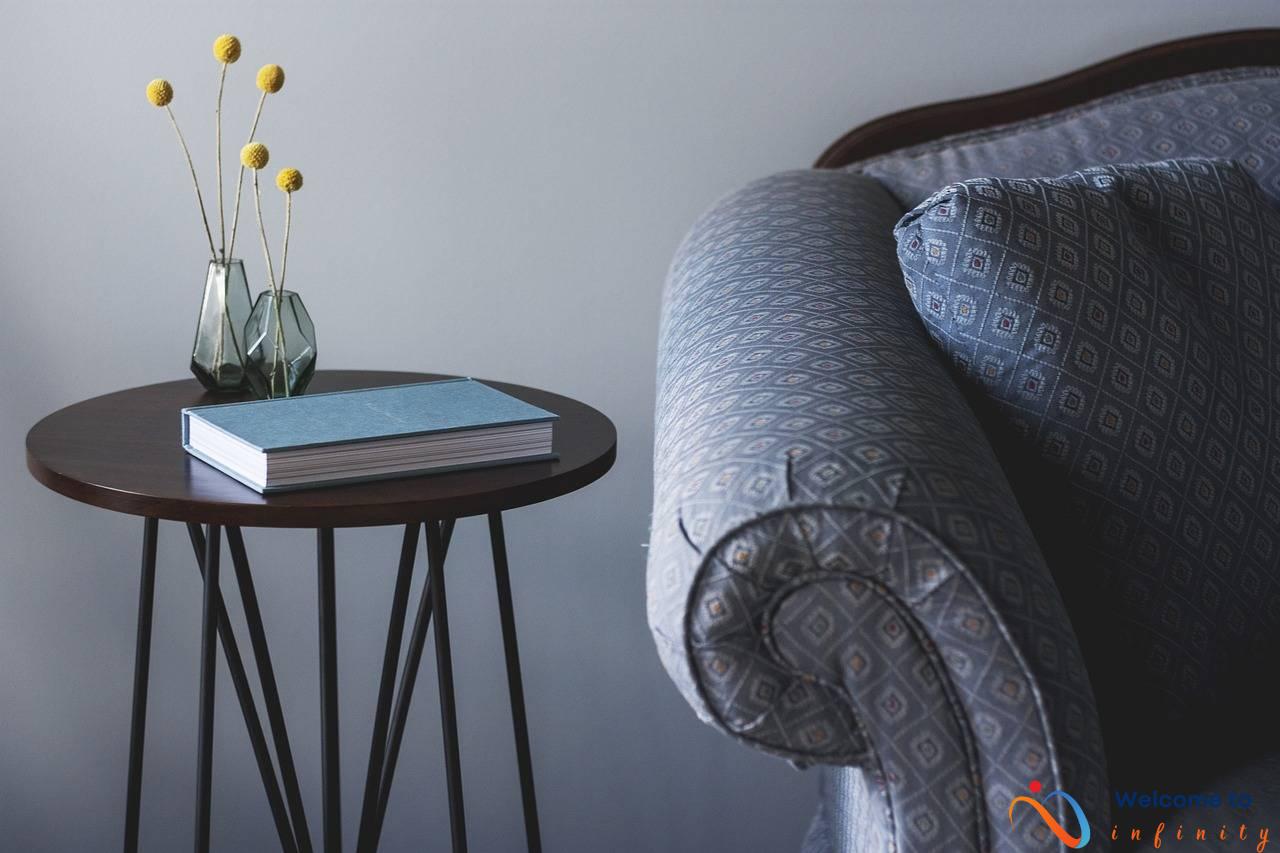As we age, our skin undergoes changes that make it more sensitive and vulnerable to damage. It is essential to care for sensitive skin carefully while also fighting the signs of aging. In this article, we will share tips and tricks to help you achieve youthful-looking skin while taking care of it.
Gentle cleansing is essential for sensitive skin, as harsh cleansers can cause irritation and inflammation. Look for a fragrance-free cleanser that removes impurities and makeup without stripping the skin's natural oils. After cleansing, hydrating your skin is crucial. Sensitive skin is prone to dryness, and using a hydrating serum or moisturizer can plump and protect the skin.
- Use gentle, fragrance-free cleanser
- Incorporate hydration serums
Another essential factor to keep in mind is the ingredients in your skincare products. Look for soothing ingredients like aloe, chamomile, and green tea that help reduce inflammation and calm the skin. Sun damage can worsen the signs of aging and trigger sensitivity in the skin. Therefore, using a broad-spectrum sunscreen with at least SPF 30 is crucial to protect your skin from UV rays. Exfoliating can brighten the complexion, but it can be too harsh for your sensitive skin. Use chemical exfoliants such as AHA or BHA acids that are less damaging.
- Look for soothing ingredients
- Use broad-spectrum sunscreen of at least SPF 30
- Use chemical exfoliants rather than harsh scrubs
Retinoids are popular anti-aging ingredients, but they can be harsh on sensitive skin. Begin with low concentration and use it sparingly to allow your skin to adjust. When in doubt, consult a dermatologist for a personalized skincare routine tailored to your sensitive skin's needs.
- Use ingredients in low concentrations
- Consult with a dermatologist when in doubt
By incorporating these tips and tricks into your skincare routine, you can care for your sensitive skin without compromising anti-aging efforts. Remember to be gentle, hydrate, and protect your skin and enjoy healthy, youthful-looking skin.
The Importance of Gentle Cleansing
Are you struggling with sensitive skin that is easily irritated by harsh cleansers? One of the key steps to maintaining a healthy and youthful-looking complexion is to gently cleanse your face without stripping away its natural oils.
When choosing a cleanser, opt for a gentle, fragrance-free formula that is specifically designed for sensitive skin. Make sure to read the ingredients list and avoid any harsh chemicals or abrasives that can irritate your skin. Natural ingredients like chamomile and aloe vera can be especially soothing, helping to reduce inflammation and calm redness.
It's important to remember that the point of cleansing is to remove dirt, oil, and makeup from your skin, not to strip away its natural moisture. Overly harsh cleansers can actually damage your skin's natural barrier, making it even more sensitive and vulnerable to environmental stressors.
Take a gentle approach to cleansing your face, using a light touch and lukewarm water to avoid any irritation. You may also want to consider using a microfiber cloth or gentle cleansing tool to help remove impurities without causing friction on your skin.
In short, gentle cleansing is a crucial step in any anti-aging skincare routine, especially for those with sensitive skin. Choose a fragrance-free formula, avoid harsh chemicals and abrasives, and use a light touch to protect your skin barrier and maintain its natural moisture.
Hydration is Key
As we age, our skin naturally loses moisture, making it more vulnerable to sensitivity. The best solution to keep our skin hydrated is by incorporating a hydrating serum or moisturizer in our daily skincare routine. It not only helps in retaining the skin's moisture but also plumps and protects it against environmental damage.
When choosing a moisturizer, always look for ingredients such as hyaluronic acid, glycerin, and ceramides, which deeply penetrate the skin and lock in moisture. Those with sensitive skin should avoid moisturizers that contain fragrances or essential oils as it could further irritate the skin.
You can also add a hydrating serum to your routine before applying moisturizer. Serums contain smaller molecules that easily penetrate the skin, providing an extra boost of hydration. Look for serums that contain ingredients like niacinamide, vitamin E, and aloe vera that work to soothe and improve the skin's texture.
Additionally, don't forget to stay hydrated from within by drinking plenty of water throughout the day. Proper hydration can help improve skin elasticity and overall complexion.
The key to keeping sensitive skin looking youthful is all about hydrating and moisturizing regularly with gentle, non-irritating products that suit your skin type.
Look for Soothing Ingredients
If you have sensitive skin, finding ingredients that soothe and calm the skin is crucial for preventing irritation and inflammation. Hyaluronic acid is a hydrating ingredient that can help plump and protect the skin from losing moisture, which can make sensitivity worse.
In addition to hydrating ingredients, ingredients like aloe, chamomile, and green tea can help reduce inflammation and soothe sensitive skin. Aloe has anti-inflammatory properties and can help soothe redness and irritation, while chamomile has been used for centuries for its calming and healing properties. Green tea is also a great ingredient for sensitive skin as it is rich in antioxidants that can help protect the skin from environmental stressors.
When shopping for skincare products, be on the lookout for products that contain these soothing ingredients. Consider using a product that combines multiple soothing ingredients for added benefits.
- Aloe: soothes redness and irritation
- Chamomile: calms and heals the skin
- Green tea: protects the skin from environmental stressors
By incorporating products with soothing ingredients into your skincare routine, you can help prevent sensitivity and inflammation while also fighting the signs of aging.
SPF is Non-Negotiable
When it comes to sensitive skin and anti-aging skincare, one thing is non-negotiable: SPF. Sun damage can not only worsen the signs of aging but it can also trigger sensitivity in the skin. It's important to always use a broad-spectrum sunscreen with at least SPF 30 to protect your skin from harmful UV rays.
In addition to using sunscreen religiously, there are other ways to protect your sensitive skin from the sun. If possible, avoid being in direct sunlight during peak hours (10am-4pm) and seek shade when possible. Wearing a wide-brimmed hat and protective clothing can also help shield your skin from the sun's harmful rays.
When choosing a sunscreen for sensitive skin, look for products labeled “fragrance-free” and “non-comedogenic” to avoid irritating your skin. Consider using a mineral-based sunscreen, which uses physical blockers like zinc oxide or titanium dioxide to protect the skin instead of chemical ingredients that can be harsh on sensitive skin.
- Apply sunscreen 15-30 minutes before going outside to give it time to absorb into the skin.
- Reapply sunscreen every two hours, or more often if you're sweating or swimming.
- Use enough sunscreen to cover all exposed skin. The recommended amount is about a shot glass full for the entire body.
Remember, even on cloudy or overcast days, UV rays can still penetrate the skin and cause damage. Make SPF a non-negotiable part of your daily skincare routine to protect your sensitive skin and fight the signs of aging.
Avoid Harsh Exfoliants
If you have sensitive skin, harsh physical exfoliants can do more harm than good. The rough particles can damage the skin's protective barrier, causing redness and irritation. Instead, opt for chemical exfoliants like alpha-hydroxy acids (AHA) or beta-hydroxy acids (BHA). These gentle acids can dissolve dead skin cells without causing micro-tears or inflammation.
You can find AHA or BHA acids in toners, serums, or masks. Look for products with a low concentration and start by using them once a week. As your skin adjusts, you can increase the frequency to two or three times a week. However, don't overdo it – even though chemical exfoliants are gentler than physical ones, they can still over-exfoliate and damage the skin.
If you're new to chemical exfoliants or have particularly sensitive skin, it's best to do a patch test before applying the product to your entire face. Apply a small amount to a small area, like behind your ear, and wait 24 hours to see if you have any adverse reactions.
- Do not use chemical exfoliants if you have open wounds, cuts, or sunburned skin.
- Always wear sunscreen when using chemical exfoliants, as they can make your skin more sensitive to the sun.
- If you're using prescription-strength retinoids, avoid using AHA or BHA acids in the same routine, as this can cause irritation.
Chemical exfoliants are a great option for sensitive skin, as they can help improve skin texture and reduce the appearance of fine lines without causing irritation or damage. However, it's essential to be mindful of the product's concentration and frequency of use. Always listen to your skin and adjust your routine accordingly.
Be Mindful of Retinoids
Retinoids have been hailed as a miracle ingredient for their ability to reduce fine lines, wrinkles, and even out skin tone. However, for those with sensitive skin, they can be more of a hazard than a blessing.
When incorporating retinoids into your skincare routine, it is essential to start with a low concentration to minimize the risk of irritation. You can begin using a retinoid product a few times a week, gradually increasing the frequency as your skin acclimates to the product.
If you experience any redness, itching, or flaking, it's crucial to discontinue use of the product immediately. Retinoids are known to induce photosensitivity, making it even more vital for users to wear sunscreen during the day.
Another helpful tip is to buffer your retinoid product with a moisturizer to further reduce the likelihood of irritation. As with all skincare products, it is essential to listen to your skin and adjust usage accordingly.
If you have any concerns about the use of retinoids for your sensitive skin, it is best to consult with a dermatologist who can advise you on the best course of action. With proper care and attention, retinoids can be an effective anti-aging ingredient for those with sensitive skin.
Consult with a Dermatologist
If you have sensitive skin, navigating the world of skincare can be overwhelming. With so many products and ingredients on the market, it can be difficult to determine what is safe and effective for your unique skin type. This is where a dermatologist can be incredibly helpful.
A dermatologist is a medical professional who specializes in the care of skin, hair, and nails. They can evaluate your skin and provide personalized recommendations for a skincare routine that will address your specific concerns while also being gentle and non-irritating for your sensitive skin.
During your consultation, the dermatologist may ask about your current skincare routine, including the products you use and any concerns you have about your skin. They may also perform a skin analysis to determine your skin type and any underlying conditions that may be affecting your skin.
Based on this information, the dermatologist can recommend specific products and ingredients that will work well for your skin, as well as advise you on what to avoid. They can also provide guidance on how often to use certain products and answer any questions you may have.
Overall, consulting with a dermatologist can be a valuable step in caring for your sensitive skin. By seeking professional advice, you can avoid potentially harmful ingredients and create a personalized skincare routine that will leave your skin looking and feeling its best.












